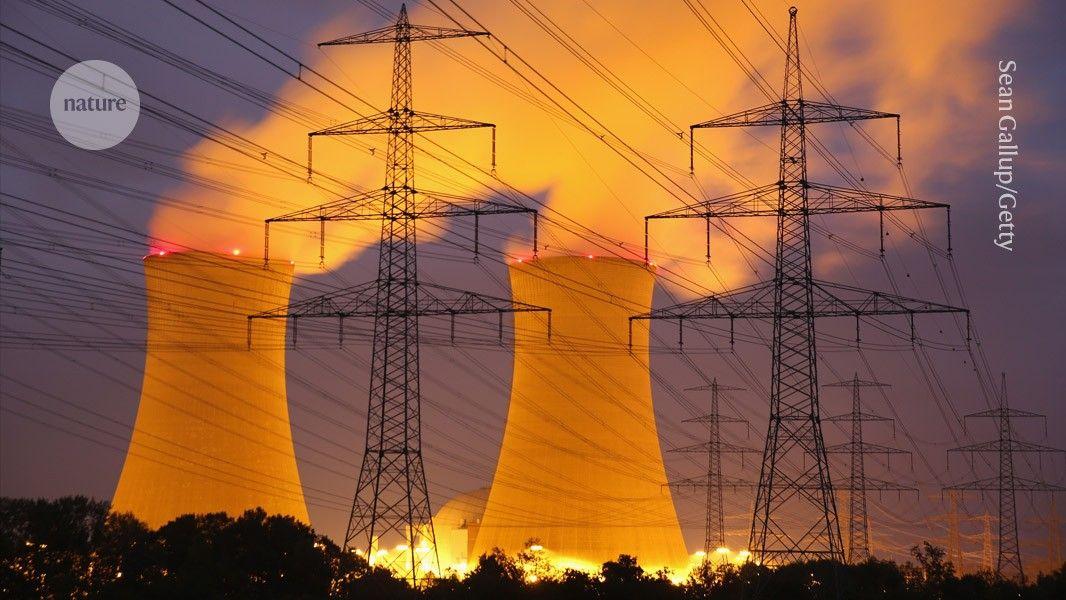Japan's METI Uncertain About DeepSeek's Impact on Future Energy Demand
2 Sources
2 Sources
[1]
Difficult yet to predict DeepSeek's potential impact on power demand, Japan's METI says
TOKYO (Reuters) - Japan's industry ministry is aware of a view that expansion of data centres may increase demand for electricity, however, it is difficult yet to predict how demand may change with the appearance of one technology such as DeepSeek, it said by email. In late December, the government released a draft of its basic energy plan, a major policy document reviewed about every three years, projecting electricity generation would rise between 10-20% by 2040 and citing higher AI-driven usage. However, the recent emergence of Chinese startup AI DeepSeek, which may use less power compared to competitors, saw analysts splitting on whether the demand for electricity will fall as a result - or increase as technology may become more affordable and widespread. In emailed comments, Japan's Ministry of Economy, Trade and Industry, or METI, said that energy demand related to AI involves complex factors such as the expansion of the use of AI by improving performance and reducing costs, and the development of energy-saving technologies. "For this reason, it is difficult to describe the impact on future energy demand with a single example," it said, noting that Japan's economic growth and industrial competitiveness will depend on whether it is possible to secure sufficient decarbonised power sources to address the demand. (Reporting by Katya Golubkova; Editing by Michael Perry)
[2]
Difficult yet to predict DeepSeek's potential impact on power demand: Japan ministry
Japan's industry ministry is aware of a view that expansion of data centres may increase demand for electricity, however, it is difficult yet to predict how demand may change with the appearance of one technology such as DeepSeek, it said by email. However, the recent emergence of Chinese startup AI DeepSeek, which may use less power compared to competitors, saw analysts splitting on whether the demand for electricity will fall as a result - or increase as technology may become more affordable and widespread. In emailed comments, Japan's Ministry of Economy, Trade and Industry, or METI, said that energy demand related to AI involves complex factors such as the expansion of the use of AI by improving performance and reducing costs, and the development of energy-saving technologies. "For this reason, it is difficult to describe the impact on future energy demand with a single example," it said, noting that Japan's economic growth and industrial competitiveness will depend on whether it is possible to secure sufficient decarbonised power sources to address the demand.
Share
Share
Copy Link
Japan's Ministry of Economy, Trade and Industry (METI) acknowledges the potential increase in electricity demand due to AI and data centers but remains uncertain about the specific impact of technologies like DeepSeek on future energy consumption.

Japan's Energy Projections and AI's Role
Japan's Ministry of Economy, Trade and Industry (METI) has recently addressed the complex relationship between artificial intelligence (AI) and energy consumption. This comes in the wake of the government's draft basic energy plan, which projects a 10-20% increase in electricity generation by 2040, partly attributed to higher AI-driven usage
1
2
.The DeepSeek Factor
The emergence of DeepSeek, a Chinese AI startup, has introduced a new variable into the energy consumption equation. DeepSeek's technology reportedly uses less power compared to its competitors, leading to divergent opinions among analysts about its potential impact on electricity demand
1
2
.METI's Stance on AI and Energy Demand
METI acknowledges the potential for data center expansion to increase electricity demand. However, the ministry emphasizes the difficulty in predicting how demand might change with the introduction of a single technology like DeepSeek
1
2
.Complexity of AI-Related Energy Demand
According to METI, energy demand related to AI involves a multitude of complex factors. These include:
- Expansion of AI use through improved performance
- Reduction in AI operational costs
- Development of energy-saving technologies
Given these variables, METI states that "it is difficult to describe the impact on future energy demand with a single example"
1
2
.Related Stories
Japan's Economic Future and Energy Concerns
METI underscores that Japan's economic growth and industrial competitiveness will hinge on its ability to secure sufficient decarbonized power sources to meet future demand
1
2
. This statement aligns with global trends towards sustainable energy solutions in the face of increasing technological power requirements.Balancing Act: Technology Advancement and Energy Consumption
The situation presents a delicate balance between technological advancement and energy consumption. While more efficient AI technologies like DeepSeek might use less power individually, their affordability and potential widespread adoption could lead to an overall increase in energy demand
1
2
.This scenario illustrates the complex interplay between technological innovation, energy efficiency, and market dynamics in shaping future energy landscapes.
References
Summarized by
Navi
[1]
Related Stories
Recent Highlights
1
ByteDance's Seedance 2.0 AI video generator triggers copyright infringement battle with Hollywood
Policy and Regulation

2
Demis Hassabis predicts AGI in 5-8 years, sees new golden era transforming medicine and science
Technology

3
Nvidia and Meta forge massive chip deal as computing power demands reshape AI infrastructure
Technology








